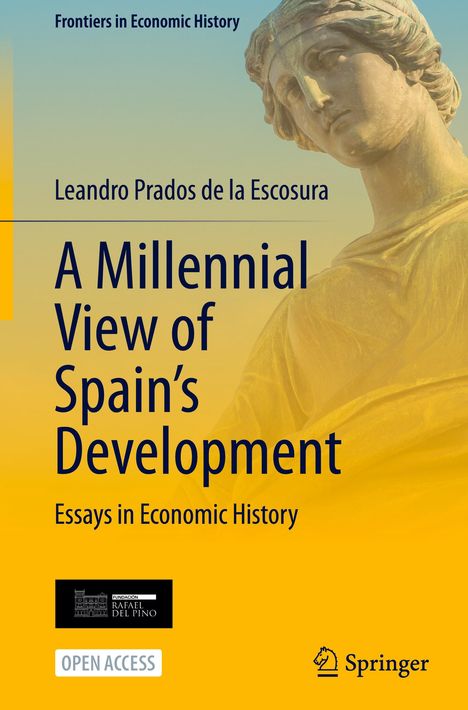Leandro Prados de la Escosura: A Millennial View of Spain's Development, Gebunden
A Millennial View of Spain's Development
- Essays in Economic History
(soweit verfügbar beim Lieferanten)
- Verlag:
- Springer International Publishing, 08/2024
- Einband:
- Gebunden, HC runder Rücken kaschiert
- Sprache:
- Englisch
- ISBN-13:
- 9783031607912
- Artikelnummer:
- 11937900
- Umfang:
- 408 Seiten
- Nummer der Auflage:
- 2024
- Ausgabe:
- 2024
- Gewicht:
- 776 g
- Maße:
- 241 x 160 mm
- Stärke:
- 28 mm
- Erscheinungstermin:
- 6.8.2024
- Hinweis
-
Achtung: Artikel ist nicht in deutscher Sprache!
Klappentext
This open access book presents the evolution of the Spanish economy over the past seven centuries since the end of the Reconquest and examines how much economic progress has Spain achieved, as well as its impact on living standards and income distribution over the very long run. It shows that preindustrial Spain was far from stagnant, although levels of output per head in the early nineteenth century were not much different from those on the eve of the Black Death (1348). It further discusses how phases of simultaneous per capita output and population expansion and shrinkage alternated, lending support to the recurring growth and frontier economy hypotheses.
While a collapse in the 1570s gave way to sluggish growth and higher inequality after a long phase of sustained growth and lower inequality, the book shows how real per capita income has improved substantially over the last two centuries, driven by increased labor productivity, and derived from more intense andefficient use of physical and human capital per worker. Presenting exposure to international competition as a stimulus for this development, the book sheds light on the underperformance of Spain up to 1950 in a European comparison and describes the catch-up of Spain¿s economy with more advanced countries until 2007. Finally, the book explains how modern economic growth is associated with an increase in the material well-being of its inhabitants, as the most dynamic economic phases of the last century have been associated with an improvement in income distribution, although the relationship between growth and inequality has not been linear.
This book is a must-read for students, researchers, and scholars of economics and economic history interested in a better understanding of cliometrics, long-run analyses, economic development, economic growth, as well as the Spanish economy.


